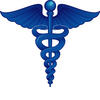But you could be wasting valuable time and suffer severe side effects that can come with strokeif help doesn’t reach you as soon as possible. . That help can come by calling 9-1-1. But do you feel comfortable calling 9-1-1. It’s the Chain of Survival that can make the difference.
Tania Charette Media Coordinator, Heart Disease and Stroke Prevention, Utah Department of Health
Do you know the common signs of stroke?
– Sudden numbness or weakness of the face, arm or leg, especially on one side of the body.
– Sudden trouble seeing in one or both eyes
– Sudden trouble walking, dizziness, loss of balance, or coordination
– Sudden severe headache with no known cause
– Sudden confusion or trouble speaking
Calling 9-1-1 at first sign of stroke is crucial.
Medical treatment begins as soon as 9-1-1 is called and the emergency dispatcher instructs them how to initiate first-aid for stroke. The person will continue to receive treatment by the EMTs or paramedics on the way to the hospital. This is the “Chain of Survival” — someone calling 9-1-1- emergency dispatch, emergency dispatch to EMTs, EMTs to hospital treatment.
– Stroke is the No. 3 cause of death and a leading cause of serious, long-term disability in America and Utah
– As a state, Utah has a high percentage of people who die of stroke before ever reaching a hospital
– Call 9-1-1 immediately, so that medical treatment can begin on the phone. Otherwise the chances of severe damage or death become much higher.
– Each year nearly 3,500 Utahns are hospitalized following strokes. An estimated 20 percent (or 700 patients) suffer severe side effects and are in need of rehabilitation programs.
9-1-1 Overview
A 9-1-1 call goes over dedicated phone lines to the 9-1-1 answering point closest to the caller and trained personnel then send the emergency help needed. 9-1-1 is only to be used in emergency situations. An emergency is any situation that requires immediate assistance from the police/sheriff, the fire department or an ambulance. Examples of emergency situations could include strokes, heart attacks, accidents or fires. If you are ever in doubt as to whether a situation is an emergency, you should call 9-1-1. It’s better to be safe and let the 9-1-1 call taker determine if you need emergency assistance. You can save a life.
Advantages and Benefits to Calling 9-1-1
– The Emergency Medical Technicians (EMTs) or Paramedics can start medical treatment on the way to the hospital
– They can call the hospital ahead of time to let them know you are on your way. That way the hsopital personal can have things ready when you arrive
– When you get to the hospital, you don’t have to wait in the emergency room
– In many emergencies, like with a stroke, time is important and a patient cannot afford to wait hours to receive treatment.
For more information, call 1-866-88-STROKE or visit www.hearthighway.org















Add comment